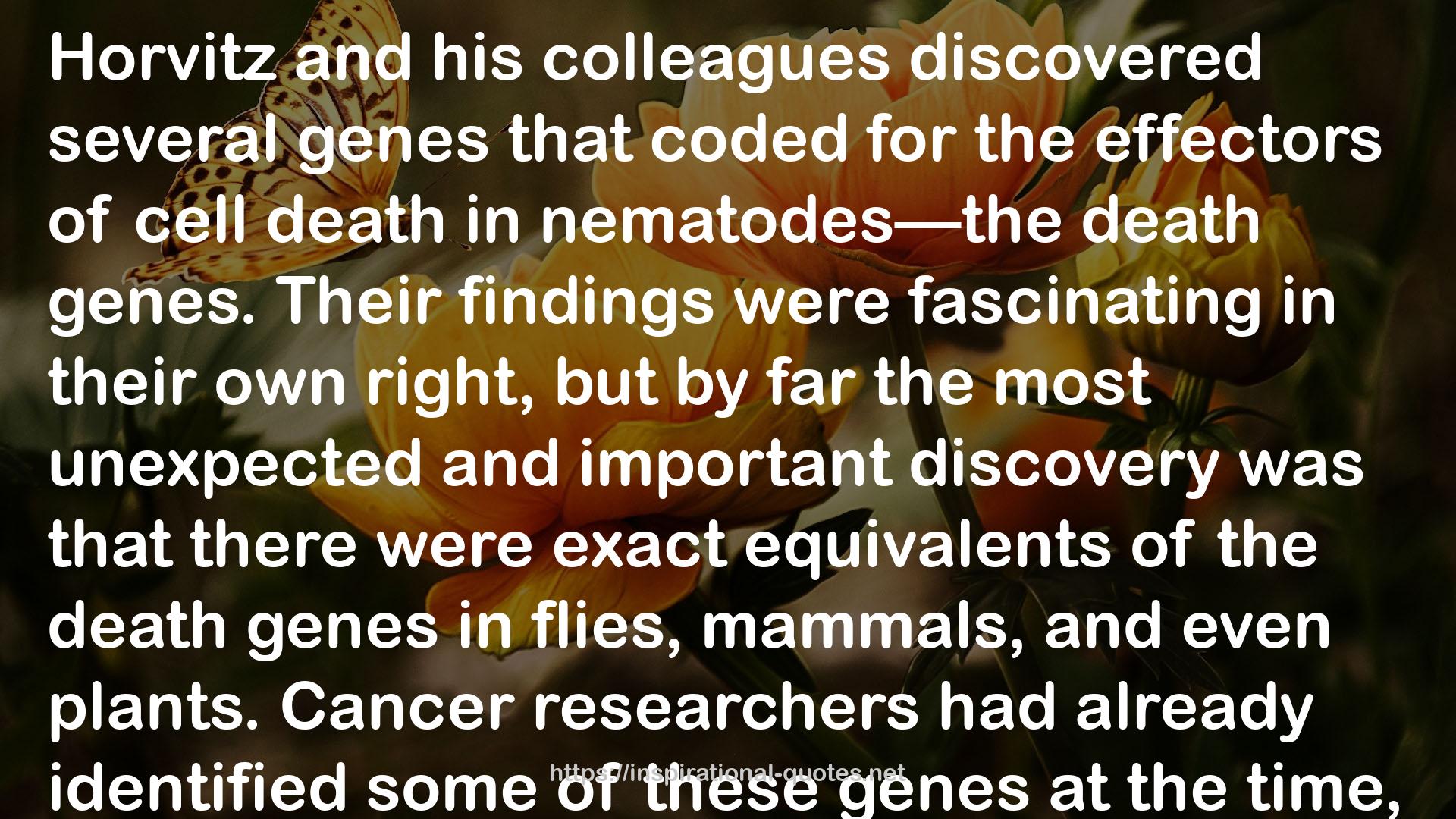" Horvitz and his colleagues discovered several genes that coded for the effectors of cell death in nematodes—the death genes. Their findings were fascinating in their own right, but by far the most unexpected and important discovery was that there were exact equivalents of the death genes in flies, mammals, and even plants. Cancer researchers had already identified some of these genes at the time, but why or how they were involved in cancer was still unknown. The link with nematodes made their function clear, while giving another demonstration of the fundamental unity of life. Not only were the human genes unambiguously related to the nematode genes, but also they could even be genetically engineered to replace the nematode genes in the worms themselves, where they worked equally well! Mutations that disabled any of the death genes prevented the nematodes from losing their 131 cells by apoptosis as usual. The implications for cancer were plain: if the same mutations had a similar effect in people, then incipient cancer cells would likewise fail to commit suicide, and would instead continue to proliferate to form a tumour. "
― Nick Lane , Power, Sex, Suicide: Mitochondria and the Meaning of Life
